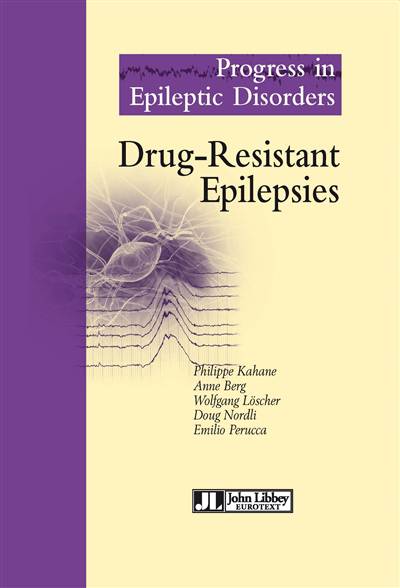
- Retrait gratuit dans votre magasin Club
- 7.000.000 titres dans notre catalogue
- Payer en toute sécurité
- Toujours un magasin près de chez vous
- Retrait gratuit dans votre magasin Club
- 7.000.000 titres dans notre catalogue
- Payer en toute sécurité
- Toujours un magasin près de chez vous
Drug-Resistant Epilepsies EBOOK
Philippe Kahane, Anne Berg, Wolfgang Löscher, Doug Nordli, Emilio PeruccaDescription
More than 12 million people with epilepsy have seizures that cannot be controlled by antiepileptic drugs. The term "drug-resistance" is abundantly used in the epilepsy literature but the definitions proposed differ considerably. It is used indifferently in a number of different settings: as a criterion for selection of patients eligible for new antiepileptic drug trials, for the selection of surgical candidates, for the design of epidemiological studies, for the design of studies on quality of life, for the definition of the epileptic encephalopathies (in comparison to more benign epilepsy syndromes), to mention but a few. As a result, available studies are usually not comparable and referral to epilepsy specialists is unacceptably delayed.
The present volume of Progress in Epileptic Disorders includes several focused chapters on all issues relating to drug-resistance and offers the basis for a consensus on a clinically meaningful core definition.
Spécifications
Parties prenantes
- Auteur(s) :
- Editeur:
Contenu
- Nombre de pages :
- 212
- Langue:
- Anglais
- Collection :
Caractéristiques
- EAN:
- 9782742012206
- Date de parution :
- 05-11-08
- Format:
- Ebook
- Protection digitale:
- /
- Format numérique:
- ePub







